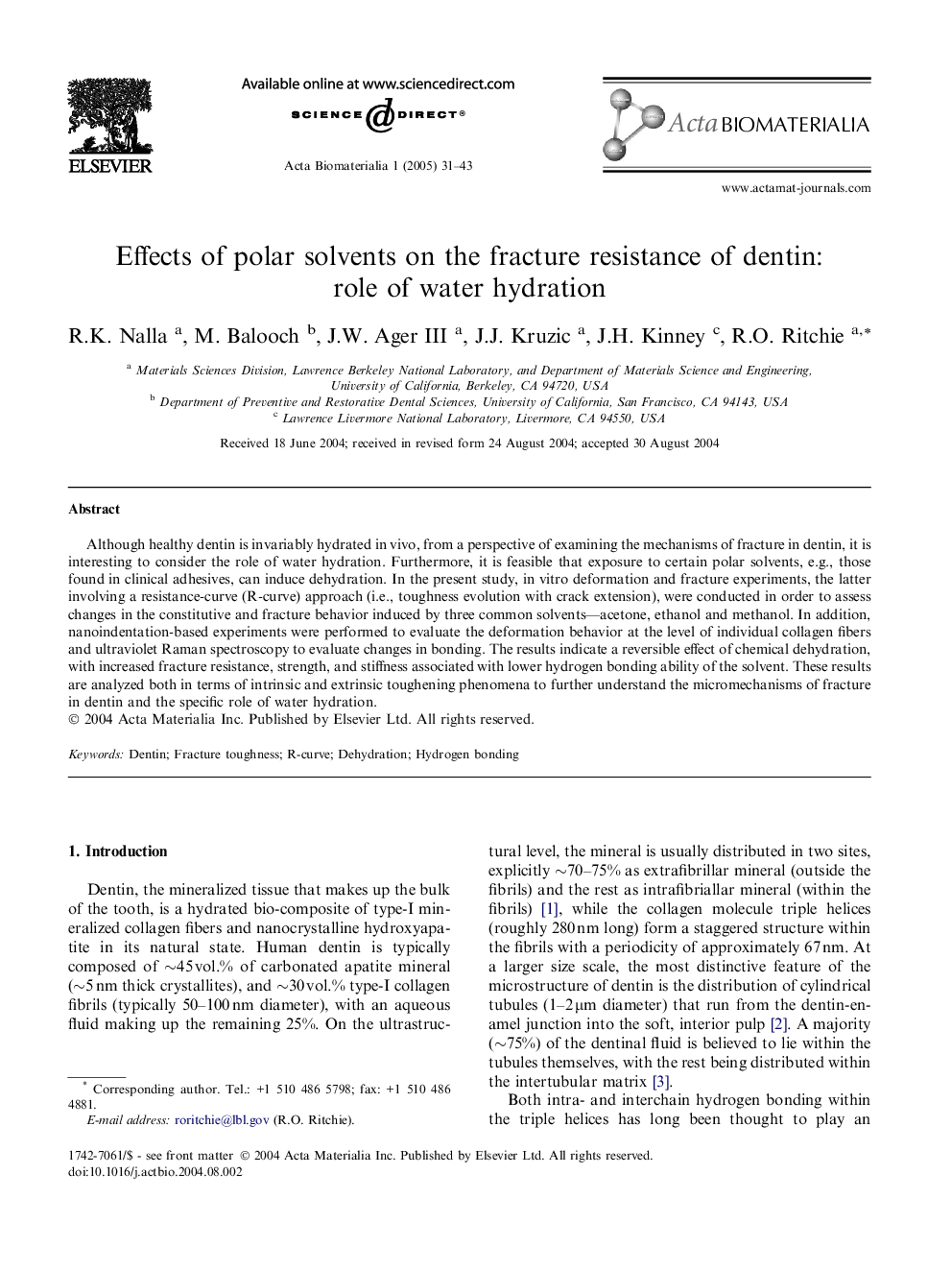| Article ID | Journal | Published Year | Pages | File Type |
|---|---|---|---|---|
| 10160434 | Acta Biomaterialia | 2005 | 13 Pages |
Abstract
Although healthy dentin is invariably hydrated in vivo, from a perspective of examining the mechanisms of fracture in dentin, it is interesting to consider the role of water hydration. Furthermore, it is feasible that exposure to certain polar solvents, e.g., those found in clinical adhesives, can induce dehydration. In the present study, in vitro deformation and fracture experiments, the latter involving a resistance-curve (R-curve) approach (i.e., toughness evolution with crack extension), were conducted in order to assess changes in the constitutive and fracture behavior induced by three common solvents-acetone, ethanol and methanol. In addition, nanoindentation-based experiments were performed to evaluate the deformation behavior at the level of individual collagen fibers and ultraviolet Raman spectroscopy to evaluate changes in bonding. The results indicate a reversible effect of chemical dehydration, with increased fracture resistance, strength, and stiffness associated with lower hydrogen bonding ability of the solvent. These results are analyzed both in terms of intrinsic and extrinsic toughening phenomena to further understand the micromechanisms of fracture in dentin and the specific role of water hydration.
Related Topics
Physical Sciences and Engineering
Chemical Engineering
Bioengineering
Authors
R.K. Nalla, M. Balooch, J.W. III, J.J. Kruzic, J.H. Kinney, R.O. Ritchie,
